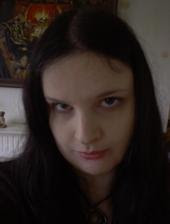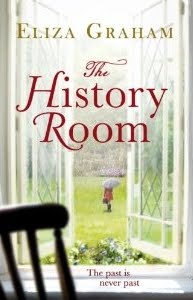
When Damia Miller is employed to promote revered Kinnerton and Dacre college, it doesn’t take her long to recognise that a grotesque antique painting recently uncovered on one of the college’s walls might hold the key to the college’s future.
Six hundred years earlier, master mason Simon of Kinnerton is preparing plans for his magnum opus, a college to rival anything in England. His work only interrupted when he becomes father to the son he has longed for for twenty years.
In the present day, Damia grows increasingly obsessed with the mysterious wall-painting and the college’s dark history. What is the painting trying to tell her? Why was the college named after its mason as well as its founder? And who does the statue of the carefree boy in the Toby Yard represent?
In mediaeval Salster, Simon of Kinnerton is struggling to come to terms with the fact that his son is disabled – cursed, in the eyes of many of Salster’s townspeople. But just as Simon himself is coming to accept young Toby a tragedy occurs whose repercussions will echo until the present day.

Now, nearly two decades on, she still practices as a therapist some of the time. The rest of the time she writes at the home in Kent which she shares with her teenage sons - who resolutely fail to be dazzled by her industry at the keyboard - and her partner who is, gratifyingly, much more easily impressed.
"Testament is a novel which reflects my own fascination with how the past can affect the present, even the long-ago past. The thought that the lives of people six hundred years ago can have a direct impact – practical, financial and emotional – on twenty-first century people is one that I find immensely attractive; it makes history alive in a way which just studying it as ‘stuff from the past’, self contained events which are now over, doesn’t. I’ve always had a penchant for split-time novels for that reason and I don’t suppose it’s any surprise that I ended up writing one.
I’ve often wondered whether human nature is universal – whether it really is human nature - or whether it is shaped by cultural circumstances, whether it has changed over centuries and millennia. That sounds deeply philosophical but what it amounts to in Testament is seeing whether, when presented with similar circumstances, people in the fourteenth century react in a significantly different way to contemporary people.
I’ve also discovered, not just in writing Testament, but in all my fiction, that I’m fascinated by communities. Testament is fundamentally about how we live as part of a community or how we survive without one. Why are some people drawn to defend communities and others to attack them? How do closed communities (like a mason’s lodge or an Oxbridge-type community) work and why are they so easily poisoned from within?"
"The good, old-fashioned way - in the Writers’ and Artists’ Yearbook! I’d spent about a year re-writing Testament after getting very encouraging feedback from another publisher. When - with the usual regret, good wishes etc - they eventually didn’t take it on, knowing I had a book which at least one industry insider thought was good, I started combing through TW&AY. When I came across the words ‘Only open to unpublished authors’, I almost couldn’t believe my eyes – I had to get my other half to read it to see that it really did say ‘Send the complete novel by email as an attachment’ – nothing about ‘Submissions only by previous agreement’ or ‘No unsolicited MS’. I sent the typescript off in September and, after a truly agonising wait for the rejection letter, got the accepance email from Will in January."
"If it’s a week my boys are with us (they divide their time between our house and their Dad’s on a week-on, week-off basis) I wave them off to school at about 8, load the dishwasher, put a load of washing on, make sure the kitchen table has enough space for my computer and notebook amongst the paper debris which seems to accumulate no matter what I do and start. Actually, ‘start’ usually means ‘read several blogs’ once I’ve turned the computer on. Since I started my own blog I’ve become a compulsive reader of other people’s and there are a few that I read every day. I try to be working on the book by 8.30 but it sometimes creeps towards 9. Then I work til somewhere between twelve and one thirty, depending on how it’s flowing, when I go for a walk. I used to run but stopped last year because I developed a bad back – probably all the sitting down rather than the running, in truth. Actually, I’ll often break off and do the walk earlier if the writing’s not going so well, I find the rhythm of walking and the mental space that being outside gives me are sometimes able to free up my subconscious and get things moving again. And walking is so much more productive in this respect than running – mostly because, when walking, you can focus on things other than pain and getting sufficient oxygen to your muscles…
After lunch, if it’s a week the boys aren’t here, I’ll usually try and work til five o’clock, then post my own blog. If they are here, I need to get the blog done before five because, once they come home, there’s a run on computers for homework and – since our desktop crashed fatally a couple of months ago - I usually relent and let one of them have my laptop.
That all sounds deceptively organised. What you have to understand is that the day is punctuated with me constantly leaping up from the kitchen table where I write to make endless cups of tea (which often go cold, they just have to be there for some reason) or to hang the washing out, or make a phone call or (like this week) sort out car insurance, or… the endless variety of things by which I justify spending four days a week at home writing when I haven’t made a single penny out of writing yet and am, therefore, a horrible drain on family resources. The strange thing is, I find that, even if the writing’s going well, I can’t simply sit there for hours on end and type away. I have to kind of ‘sidle up’ to my story and peek at it, write a bit, then get up from the keyboard and go and do something else for a few minutes,as if I’m trying to convince my characters that I wasn’t really watching them, writing down their every word and action. It’s a weird process.
Then there are the things I do whilst sitting at the keyboard which aren’t strictly speaking, writing (no, I’m not talking about staring into space and thinking – that’s definitely writing) like cleaning fluff and cat hair out of my keyboard. Our cat should be bald, the amount of hair which lurks in my Toshiba. And checking to see whether anybody’s commented on yesterday’s blog, that’s a big timewaster too. I justify it by telling myself it’s all communication with the bookbuying public. Hmmm. How much self-delusion can one person seriously be under?
Then, depending on season, there are the endless arguments with self about whether one can work seriously outside in the sun. (I was so desperate this summer that I designed a little cardboard ‘hat’ for my laptop screen to cut out some sun-glare. It sort of worked but I looked totally mental peering with screwed up eyes at words I could barely see.) In the winter, the arguments morph into whether to turn the heating on. ‘Put another jumper on’, my green-tinted self says. After two jumpers, fingerless gloves and a hotwater bottle for my feet, when my fingers still refuse to find the right keys, I usually relent, and with all the thermostatic valves turned down except the ones in the kitchen, where I work, I turn it on.
As you will probably have worked out, I write straight on to my laptop, though, interestingly (interesting to me, anyway) I never word-process notes. All my notes are done in A4 notebooks, in pencil, and are done as manically-legged spider-diagrams. I’m an instinctively lateral thinker and find sequential thinking really hard, so sometimes, the sheer linear, onward march of a novel is difficult. I look at a page of notes for a chapter and think – it all seemed so perfect, why is it turning out to be so hard!"
"No, it’s not the days when you look at what you’ve written and think you’re completely crap, they just have to be got through. It’s other people’s expectations. Family and close friends get it – they’re basically excluded from the creative process, sorry and all that, can’t be discussing the work-in-progress, just wait patiently a year or two and all will be revealed – but other people seem to imagine that you’ll want to tell them in detail about your book, and, moreover, that you will enjoy listening to them telling you about all the amazing things which have happened to them/their Aunt Mabel/this bloke at work about which they could – if they could find the time in their oh so busy life – write a really funny book about. It would sell a lot of copies, you know, make them a lot of money; if they could find the time. ‘I’ve often thought I could write a book if I had the time’ – are they the most irritating, annoying and slap-worthy words in the world? Well, no, probably not, but they are immensely aggravating, aren’t they, when you’ve just heard them for the hundredth time?"
Best thing about writing:
"Being left alone to do your own thing and – a nice spin-off - being a pleasant person to come home to in the evening. And, during the writing process itself, that moment when you suddenly realise, with perfect clarity, how a scene is supposed to work, or where a new and inevitable twist becomes clear, or when you finally realise what that huge climactic scene in your book has just got to be. The ‘click’ moment. For me, there’s no excitement like it. (Yes, I do lead a quiet life!)"
Writers you most admire:
"Clearly, I have led a very dull life because I can’t think of much that’s ever happened to me which could be described as ludicrous. One of the most embarassing moments of my life was as assistant stage manager for the school play. (Either I don’t put myself in embarassing situations much or I’ve blocked them out – this was twenty-seven years ago, for goodness sake!) On the second night of the run, for no discernible reason apart from the fact that I must have had some kind of minor neurological event, I opened the curtains thirty seconds too early, before the actors were in place. This necessitated lightning crisis-management by the director and instantaneous generation of a few lines which Terence Rattigan never wrote to explain why the maid comes in to the room at the beginning of The Winslow Boy to find the windows open but the room entirely devoid of Boy! And the worst thing was, apart from an agonised look from my friend the Stage Manager as she saw the curtain opening, nobody said a word about what a total cretin I’d been, they just rallied round and sorted it! Why would I have preferred to be shouted at? You tell me…"

























